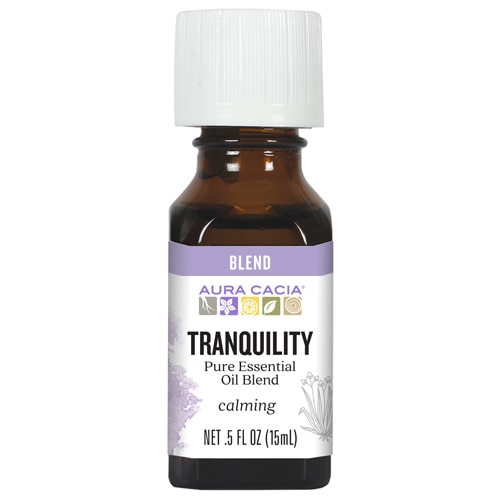There’s no doubt about it: The COVID-19 pandemic that has blanketed the globe has altered the fabric of our daily living. On top of fearing the novel virus that has infected nearly a million people in the U.S. as of writing this, we’re driving through barren streets, seeing the businesses in our communities shuttering their doors, and changing how we work, shop, socialize, love and even exercise.
Life right now remains unpredictable—and much of it seems far outside of our control. And yet, Viktor Frankl was spot-on when he said, “Forces beyond your control can take away everything you possess except one thing: your freedom to choose how you will respond to the situation.”
How to interpret this in this rapidly-changing world? By taking tremendous care of yourself and your loved ones. In addition to practicing a healthy lifestyle—eating a nutrient-rich diet, getting ample exercise and sleep, and hydration—it’s more vital than ever to adopt stress-busting practices. At the top of your list should be journaling.
Why? In addition to the health benefits emotionally expressive writing can provide—including enhanced immune function and reduced blood pressure—journaling is a boon for your mental well-being. Here are five reasons the timeworn tradition of chronicling your thoughts can work wonders for you during the pandemic:
5 Reasons to Keep a Journal During the Pandemic
1. Emotion management
Chances are you’re feeling a wide range of emotions right now, perhaps vacillating between panic and peace, irritability and acceptance, and grief and “okay”-ness. All of this is absolutely natural, if not expected. But for those who are self-isolating or in quarantine, there’s also a good chance you have limited access to the outlets that helped you work through emotions in the past—your favorite fitness class, say, or your best friend’s warm (and in-person) company.
This is where journaling comes in. A blank page—or several—gives you the opportunity to record what you’re feeling without judgement or diminishment.
“Your journal has the potential to be both therapist and a dear friend who listens without judging or interrupting and is open 24 hours a day,” author Jackee Holder said in Psychologies. “You can tell your journal things you wouldn’t dare verbalize to someone else. Writing it down takes the edge off more toxic feelings and emotions and helps you better understand what you’re feeling, freeing you thinking space to gain clarity on what to do next.”
The takes the edge off more toxic feelings and emotions is especially critical here, particularly if you’re sheltering-in-place with your partner or family members, who may be at the receiving end of your tumultuous emotions. Reducing the intensity of your feelings will also allow you to move through your days with greater ease and confidence.
Tip: When you’re experiencing an overwhelming emotion—fear, for example—take to the page, focusing on the entirety of the feeling you’re experiencing. List the reasons that may be causing it, and how you might take action to combat it. Imagine and describe the emotion’s qualities—its shape and color and texture and size.
Then, picture and feel an emotion that would soothe what you’re feeling—in short, its antithesis. What does, say, tranquility look like for you? Who is part of this peaceful painting; where would it be taken? What expression would be on your face; what sort of feelings would be coursing through your body? Describe it all in as much detail as possible. By concentrating on serene images, your mind and body will be able to relax, rendering the emotion you sat down to write about all the more manageable.
2. Mental exercise
You may be doing barre classes via Zoom and taking your pup for walks around your ‘hood, but is your brain getting a workout?
The answer is yes—indeed, since the 1990s, research has shown that physical exercise decreases neurodegenerative disorders such as Alzheimer’s and enhances memory (among other pluses)—but it’s equally important to put your mind on the proverbial agility course. Doing so fires new neurons, improves recall, increases logic, and protects you from cognitive decline.
Again, this is where journaling comes in. You may think that crosswords and reading during quarantine are keeping your mental skills sharp, and while they certainly are, it’s important to push yourself.
“Studies have shown that if a task does not increase in difficulty, your brain will become bored and start to automize the process,” NeuroNation reports. “The more you play Sudoku, the better you get, but your brain is no longer challenged once you get good at it. This is because the brain restructures itself—mastering a challenge and automizing it to be ready for the next one. Although this is great for tasks we have to do on a regular basis, such as driving a car or riding a bike, your brain needs new challenges to stay fit.”
Unless you’re a writer—or don’t identify as a “writer,” per se, but jot down your thoughts on a regular basis—journaling is a fresh way to pump cognitive iron.
Tip: Create goals within your journaling practice. Choose a set number of words to accomplish—say, 1500 words—and write until you achieve it. Turn the events of your day, no matter how mundane they may seem during quarantine, into a story, complete with dialogue, sensory details, rising action, a climax, and a resolution.
Break out of your habit of using the same old words by utilizing your interior thesaurus (or an on-line thesaurus) for fresh diction. You’ll be surprised by how energized your brain will feel—and how fun this can be.
3. Stress Release
Have you ever felt a wave of calm wash over you after dancing your heart out in your living room? Or experienced a sense of quiet control while painting your spare room? Creative expression has long been associated with decreased stress because it operates as a way to repurpose your energy, just as it takes your mind off of the issues plaguing you. Or, in other words, it gives the tension you’re experiencing a container.
“The amygdala, an almond-shaped collection of neurons located on each side of the lobe, registers emotional information and helps us identify our surroundings to determine whether it is dangerous,” lead psychiatrist at Ketamine Health Centers, Dr. Francisco Cruz, told Forbes.
“Once journaling becomes a daily habit, the amygdala begins to register journaling as a safe zone for personal growth, healing and reflection.” This is particularly important during the coronavirus crisis, when some are finding themselves in cramped spaces with limited access to other secure, nurturing areas.
Tip: If possible, turn a corner in your home into a journaling space. For some, this may mean a spot on their balcony; for others, it might be the bathtub. Pay attention to the area and add a feature or two that will spur your emotional expression and creativity, whether it’s a candle or a postcard. By designating an area specific to the activity of writing, you’ll begin associating journaling with it—and will come to think of it as another home.
4. Symptom tracker
Our understanding of COVID-19 changes daily, sometimes hourly, with more and more symptoms and data emerging. Keeping a journal during this time will allow you to track your symptoms in such a way that some of your anxiety around them will be lessened; what’s more, unless a sensation is acknowledged, it’s all too easy to confuse symptoms of stress (such as fatigue and a tension headache) with the coronavirus. Additionally, having a record of your symptoms will give your physician a clearer sense of your health should you need to seek medical attention.
Tip: One of the beauties of journaling is that it allows you to shift perspective. As you assess the things you may be feeling on a somatic level—such as strain in your shoulders or an upset stomach—consider what the cause might be outside of the coronavirus. Exploring this on the page—well, I did get into an argument with my husband—may assuage your COVID-19 anxiety and build a deeper connection with your body.
5. Grief processing
Whatever your circumstances may be, what we can all more or less agree on is that we have a sense of what psychologists call “anticipatory grief.”
As Healthline puts it, “There’s a collective loss of normalcy, and for many of us, we’ve lost a sense of connection, routine, and certainly about the future. Some of us have already lost jobs and even loved ones. And most, if not all of us, have a lingering sense that more loss is still to come. That sense of fearful anticipation is called “anticipatory grief,” and it can be a doozy.”
Journaling offers a healthy way to work through this. On the page, you can identify where you are in the process, and come to grips with the fact that grief, in any form, is not linear and may pop up some days and other days only mildly or not at all. By putting your thoughts and emotions down, you’ll begin to see patterns and triggers, and figure out a way to handle them with efficacy, grace and compassion.
Tip: Introspection declutters the mind and assists you in moving through challenging emotions, but mapping out what your ideal future would look like will empower you. What can you learn from this pandemic? What changes would you like to make in your life, when things return to “normal” (or a new normal)? How can you vitalize yourself and, thus, the world? Journal it and remember what Margaret Atwood once said: “A word after a word after a word is power.”




